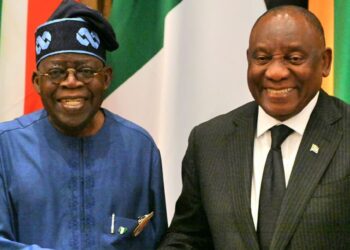Riverside LNG, a Nigerian-based energy company, has revealed ongoing discussions regarding a potential agreement to supply gas to South Africa from the first quarter of 2024.
This would mark the first such deal between the two nations, showcasing potential collaboration in the energy sector.
Earlier this year, the company entered into a gas-export partnership agreement with Johannes Schuetze Energy Import AG of Germany. CEO David Ige, in an interview held in Abuja, expressed the company’s current pursuit of new deals on the continent.
Nigeria has the largest gas reserves in Africa
- “We’d probably very early in the year close out another segment of the market, an off-take for South Africa,
- “There’s a massively evolving gas market in the region, anything around 3,000 nautical miles of Nigeria. So that covers southern Africa, western Africa, all to northwest Europe and to the Caribbean and South America broadly,” Ige told newsmen in Abuja.
Meanwhile, Ige refrained from divulging additional information about discussions with South African counterparts, citing confidentiality clauses. Additionally, the company is actively investigating potential opportunities in Liberia and Cameroon.
What you should know
- South Africa currently grapples with persistent power shortages as ageing and inadequately maintained power stations, managed by financially troubled state utility Eskom Holdings SOC Ltd., falter under increasing demand. Attempts to procure extra electricity from private providers encounter delays caused by grid constraints and legal disputes.
- South Africa currently doesn’t have a facility to receive LNG. Deliveries from the project won’t start until 2027, so there’s “enough time for import terminal infrastructure,” Ige said.
- The nation depends on coal for 80% of its electricity production. However, given the lack of probable investments in this sector, there is a shift towards renewable sources. The goal is to achieve 60 gigawatts of power from renewables by 2030.
- The Southern African Development Community, comprising 16 members, has endorsed a $17 billion plan for natural gas infrastructure. This initiative aims to enhance energy provisions in the region by approving investments in pipelines and terminals for both local and imported supplies.
- “A lot of those countries are looking to go gas,
- “We see a huge opportunity for Nigeria in being a trading hub,” Iged added























Happy Christmas
What is happening to those communities producing the gas? Let them breathe.